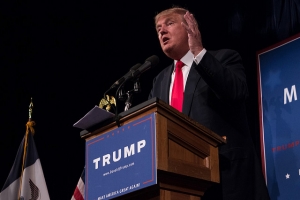Support migrant centric journalism today and donate

 Watch This Video
Watch This VideoOver the past year, the economy has been turning around in Germany. For nearly a decade, Germany has been synonymous with an anemic economy, high unemployment and a nearly out-of-control cost of living.
While enjoying one of the highest standards of living in the world, Germany has been losing droves of its most highly educated, professional workforce to emigration. In most part, the youth of Germany complain there are few opportunities to find a good job and make a career.
<$adv0> Chancellor Angela Merkel has struggled with the legacy ever since taking power, and now the efforts to turn the country around seem to be beginning to bear fruit.
Economic news out of Germany has been the best in years, with surprise figures on dropping unemployment and economic growth. One of the giants of the European Union appears ready to hit its stride, with years of hard work behind it and a number of reforms on the horizon.
Attracting workers
Immigration reform is a hot topic again, with the government recognizing that the population growth rate is far behind sustainability. A number of proposals are up for debate on how to attract foreigners to, at least temporarily, bolster the work force.
Now in the last few weeks of its presidency of the European Union for the first half of 2007, Germany is about to hand the presidency off to France. Of several efforts the country has attempted to impress upon the EU, immigration reform, EU-wide labor initiatives, and mobility of business across the EU are among them.
However, Germany has never had a minimum wage.
While championing workers rights and competitive business practice, some service sectors in Germany may expect to earn nearly as low as €3.00 (~$4.00) per hour, a condition unchanged for over a decade.
Wages have been so stagnant that they have fallen far behind inflation, leaving some workers literally at starvation wages.
Germany has flirted with minimum wage laws for a number of years now. Especially since 2005, talk and government promises of a minimum wage have been heating up. However, apart from some very specific and narrowly targeted initiatives, nothing serious has been accomplished.
In large part, the struggling economy and high unemployment have kept the issue suppressed. Also, the fairly pro-business Merkel government has had little incentive to support such efforts ... and a lot of incentive to resist them.
Minimum wage inevitable?
But change may well be in the air this year.
With a strengthening economy, combined with very aggressive talk by the government on the world stage about workers rights in the EU and a sudden sea-change in understanding for a need for immigration incentives, labor-friendly interests may well get their wish.
Last month, for May Day festivities, labor organizations staged a strong push to increase awareness of just how low German wages are in many sectors.
In the United States, $5.15 (€3.84) per hour has been the minimum wage for ten years, with recent initiatives to try and raise it to $7.50 (€5.60) over the next two to three years. While those efforts have failed so far, the fight continues.
What German labor interests hope to accomplish is to not only establish a minimum wage for the first time in Germany's history, but to set it at €7.50 (just over $10) an hour.
And they may not be setting their sites too high.
A sea change?
Immediately in the wake of the May Day festivities, Angela Merkel strongly denied that she would allow a minimum wage to be set.
But, some business interests are beginning to support the idea of a minimum wage, even if they don't envision it at quite the rates that labor would like to see. Also, Merkel and her government are not in a good position to openly thwart the effort in the wake of more than six months of strong talk about EU labor rights.
Add to that, there will be little relief coming from France for the second half of the year; the pressure is on for the German government to show by example what they have been preaching for more than half a year now.
The final nail in the coffin may well be immigration reform. From a very pragmatic viewpoint, Germany is desperate to attract workers to bolster the economic turn-around into something sustainable. Foreign-born workers will be key to that effort, no matter where in the world they come from.
With intense global competition to attract workers, the Merkel government may well have checkmated itself. Having pushed hard to consider an EU-wide "blue card" for immigrant workers while pushing for workers rights in general, for appearances sake, at the least, Germany may well be setting a minimum wage before the end of the summer. If not by the end of the month.
National elections are coming up in 2009, with workers and voters being strongly in favor of a minimum wage. Elected officials could set the stage now for campaigning next year.
While some businesses are resisting the idea strongly, the majority seem to see the writing on the wall. A few even see advantage to setting now, while they still have some say in what level it may be set at.
Related:
• German population falling, increased immigration seen as partial solution• Immigration fails to stem European population loss
• Germany's professionals look for greener pastures abroad
• Germany – Immigrant workers needed
• Germany's population continues to decline
• European Union Services Directive approved for free movement
• European Union ministers focus on job quality standards for EU
• Spotlight - Free movement of labor: a basic right of the EU
• European Union "Blue Card" work permit gathering steam
• EU immigration on the 50th Anniversary of the European Union
• European Union to crack down on businesses employing illegal migrants
• Shortage of professional & labor skills being felt in Eastern Europe





















